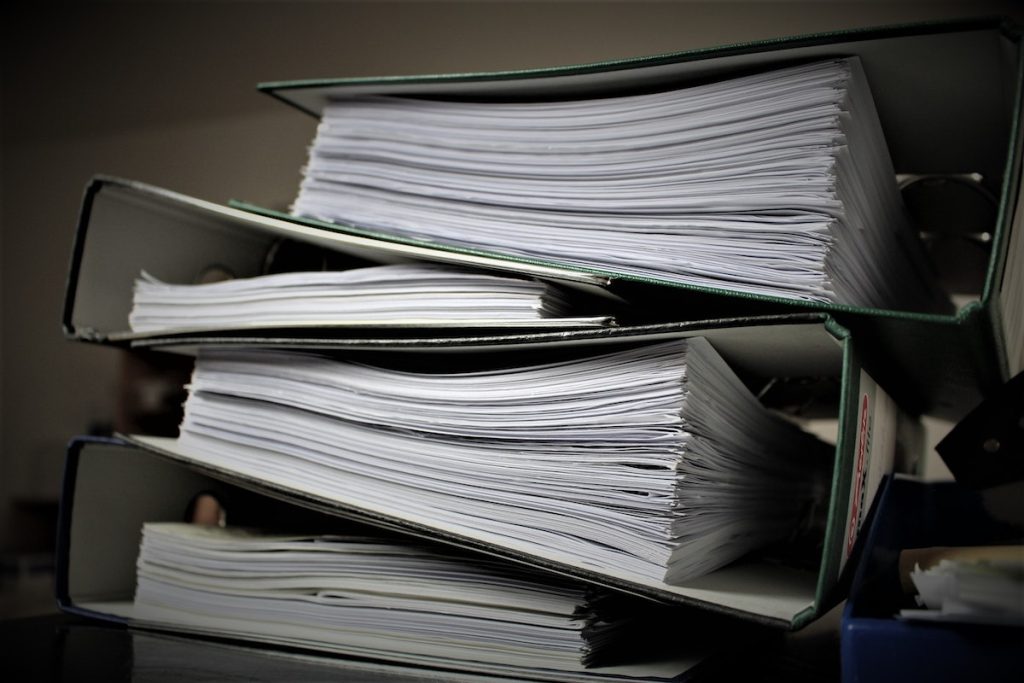One of the most critical aspects of preparing for your court case is gathering all the necessary documents. This can be a daunting and time-consuming task, but it is crucial to the success of your case. Most of the documents you need will depend on the type of case and the allegations. However, there are some general rules to follow that can help simplify the process. In this blog post, we will provide tips on efficiently gathering all of the essential documents you will need for your court case.
1. Create a list of necessary documents.

The first step is to make a list of all of the documents that you will need for your case. This list should include everything from medical and financial records to emails and text messages. Depending on the type of case, there may be specific documents that you must include in your paperwork. Knowing precisely what is required can help streamline the gathering process.
Your lawyer can be an invaluable resource when it comes to listing out all of the necessary documents. They will have experience managing cases similar to yours and can provide expert advice on what documents are required. You can also use the internet to research what documents you may need for your case, but it is still best to consult your lawyer before gathering any documents.
2. Start the document retrieval process as soon as possible.
It is vital to start the document retrieval process as soon as possible. Many documents have a limited lifespan and can expire after a specific time, making them unusable. Also, some papers may not be available if they have been destroyed or lost by the custodian. Therefore, it is essential to start the document-gathering process as soon as possible to ensure that all necessary documents are collected.
There is also the lengthy process of domesticating documents, which can be time-consuming. Document domestication is the process of providing authenticated documents to the court which are needed for certain types of proceedings. So if you are in New York and the records originate from another state, you may need to domesticate them under NY CPLR 3119. This process can take weeks or even months, depending on the type of documents and the state from which they originate, so it is vital to get the process started as soon as possible.
3. Contact the custodians of required records.
You can now begin contacting the relevant people and organizations to request the documents. Be sure to keep track of who you have contacted and what documents they are sending you. It can be helpful to create a spreadsheet or other tracking system to easily keep track of what you have and have not received. Because some documents take longer than others to be processed, it is essential to be patient.
When contacting the documents’ custodians, ensure you provide them with all the necessary information. This includes your contact information and case number (if applicable). You should also clarify what documents you are requesting and provide any necessary authorization forms or other paperwork required for the request.
4. Have all documents organized and labeled properly for review.
Once you have retrieved all the necessary documents, organizing and labeling them properly is essential. This will make it easier for you or your lawyer to review the records and identify any critical information. Depending on the type of case, you may also need to provide copies of the documents to opposing counsel or the court.
Having all the documents organized in a labeled binder or folder will make it easier to present them to anyone needing them. If you are representing yourself in court, having the documents organized and ready for presentation can also help boost your confidence and impress the judge. Often, it is helpful to have someone else look at them as well so that you can get a second opinion. After reviewing the documents, you can start preparing them for court.
Gathering essential documents for your court case does not have to be overwhelming if you take the time to prepare and stay organized. By following the tips in this blog post, you can ensure that you have all the documentation needed to build a strong case and maximize your chances of success in court. Always consult with your lawyer before beginning the document-gathering process, and have all documents organized and labeled for review. With a little bit of preparation, you can be sure that you are prepared with all the necessary documents when it is time to go to court.



